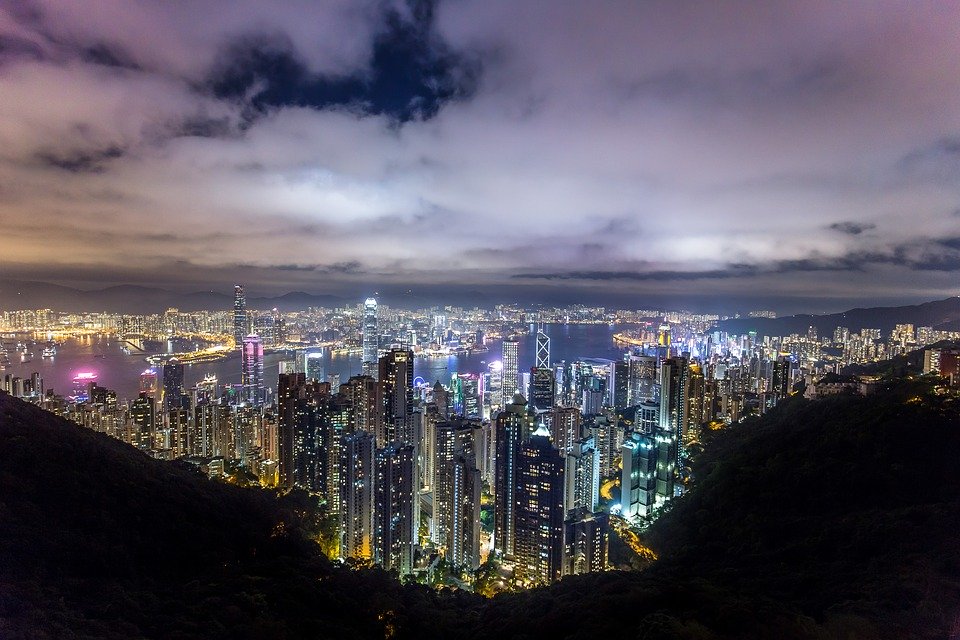Protests in Hong Kong have been going on for almost six months in response to a bill called the Fugitive Offenders and Mutual Legal Assistance in Criminal Matters Legislation (Amendment), also known as the 2019 Hong Kong Extradition Bill. In June, Hong Kong’s chief executive announced that the bill had been officially withdrawn, but protests continued. The legislation and bill may have sparked the protest, but it also inspired them to advocate for even more change.
In February, the Hong Kong government proposed a bill that would allow for extradition to mainland China, meaning that Hong Kong could hand over suspects to other countries for legal prosecution. The bill would apply to anyone living within Hong Kong, including tourists, and was created because of a man from Hong Kong who was suspected of stabbing his girlfriend in Taiwan. The man was arrested in Hong Kong and found guilty of money laundering as well, but the man could not be sent back to Taiwan for litigation because of the lack of a legal framework.
The bill was seen as “legalized kidnapping” by some and as a threat to the “One country, two systems” idea between China and Hong Kong. People had thought if that the bill would be passed, Hong Kong would be no different from any other city in mainland China. Hong Kong expressed that the bill was amended to ensure that suspects were given a fair trial and hearing. Three months after the bill was proposed, the bill withdrew due to the outbreak of protests.
The concern about the bill was how people would face extreme legal prosecution from mainland China’s legal system. The opposing policies and political activists could encounter extreme fabricated charges. The bill was proposed because of China’s President, Xi Jinping, plans to slowly deteriorate Hong Kong’s autonomy.
The week of June 1, more than one million people showed up to protest the Fugitive Offender Bill. People had fled the streets and showed up to government offices. Things got violent when protesters attempted to storm the Legislative Council building, where the bill was being heard, and police officers started using tear gas and rubber bullets. The amount of tear gas had surpassed the amount used during the 2014 Umbrella Movement, which asked for more honest elections. The Hong Kong police had identified the protest as a riot in their reports. The past six-months, have seen several more violent protests. The protest had started because of the amendment, but people continued to protest against police brutality and for a greater democracy.
People were faced with 10 years of jail time for rioting, which made many flee their homes and onto the streets for better protection. People had even made their way to the sewers in an effort to hide.
On Nov. 4, a 22-year old college student, Alex Chow, fell from a parking garage due to police officers using tear gas to clear the area from protesters. Chow ended up passing away because of the suffered brain damage. Vigils were held across Hong Kong.
In retaliation, protesters communicated over Telegram, an encrypted messaging app according to Buzzfeed, and planned a strike to close voting polls in the city. Protesters had gathered objects like bricks, and bikes to block Tolo Highway, which is en route to the business district in Hong Kong Island. Other protesters had set fire to train tracks in University Station, in an attempt to stop the working commute. Tolo Highway is located right across from the Chinese University of Hong Kong (CUHK). When law enforcement arrived at CUHK, students were surprised when officers started shooting pellets with pepper spray on a bridge and firing tear gas onto the sports field.
After a strike on Nov. 11, everything began falling apart. Universities had turned into battle zones. There was a 12-day police siege at Hong Kong Polytechnic University, which sparked a vote by the government with a pro-democratic district council or else be seen as a referendum by others. United States’ President Donald Trump signed the Hong Kong Human Rights and Democracy Act, a bill to provide sanctions, and a threat penalty, for Hong Kong and China officials for human rights violations. China retaliated by blocking requests for US military vessels and aircrafts to visit China. Beijing released its sanctions as well. Even after the referendum and sanctions, students were still trapped at the Polytechnic University because police officers refused to let them go.
On Dec. 9, the Hong Kong police dismantled two homemade explosive devices at a local Catholic school. A bomb disposal officer had stated that the explosive was fully ready to function and ignite from a mobile device. The two explosives had contained 22 pounds of explosive material.
Hong Kong is an autonomous region in China. Meaning that Hong Kong still has the power to govern itself, and offer free speech and capitalist markets. Hong Kong was a settlement of the British Empire which turned Hong Kong into a major business center. The United States is worried by Hong Kong because they see them as separate from China and therefore a formidable economic opponent.
With protests and riots continuing throughout Hong Kong, it will be interesting to see how the government responds.
